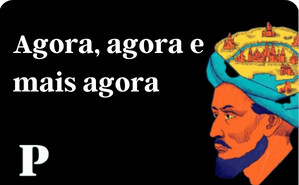
On 25 April 1974 – 49 years ago – telexes and wire photos in newsrooms across the world started churning out texts and images from a half-forgotten country in the southwestern fringe of Europe.
My country, Portugal, was then a 48-year-old dictatorship embroiled in a 13-year-long war in three of its five African colonies, Angola, Mozambique, and Guinea-Bissau, as it struggled to block their independence. Opposition figures had been trying to overthrow the regime for decades. Many were in jail cells or had fled into exile. They had tried to call the world’s attention to Portugal but to no avail.
In those days, the wire photo transmitters used by big news agencies would take around 10 minutes to scan a black-and-white photo and send it over the phone. What journalists across the world saw unfolding in Portugal was as unexpected and uplifting as one could imagine in those years consumed by the oil shock, inflation, and the Vietnam War. From Lisbon came images of a quite unusual revolution: peaceful young soldiers smiling, small kids sitting on the sidewalk waving at photographers, and flowers – lots of flowers, especially white and red carnations that flower-sellers and passers-by would put in the barrels of the soldiers’ rifles.
The Portuguese Carnation Revolution was the last great revolution of the golden age of photojournalism – that lasted from the 1910s to the 1970s – and the first great revolution of the so-called “Third Wave of Democratisation”, as political scientists call it, that started in southern Europe in the early-70s (Portugal, Greece, Spain), spread to Latin America and Asia in the early and mid-1980s (Brazil, Argentina, Philippines, South Korea) and returned to Europe in the end of the 1980s and early 1990s in the east and the Soviet Union.
I was two years old. The global impact of my country’s revolution eluded me, but the revolution was global in what it meant for us as kids. We grew up in a highly politicised country, where people would spend all day arguing about parties and leaders. Our cities were full of posters and possibility, and elections were movable feasts.
By the end of 25 April 1974, Portuguese newspapers were printing extra editions stating boldly: “This newspaper has not been examined by any censorship commission”. People had raided the headquarters of the secret police. In the following days, all political prisoners were freed. It was a perfect day for my country. It still is.
As the 20th century drew to a close and we entered the 21st, I began to sense a change in what politics was about. Politics became less and less about what new good things we could bring to the people and more and more about who could provide less: fewer taxes or fewer cuts, harsh austerity or austerity-lite.
I cannot help but feel that this reversal is the source of our troubles. Either we find a way to set forward a new version of the “3 Ds” – democratise, develop and decolonise – that gives people a greater chance to flourish or more people will flounder into the frustration and despair where the authoritarians make hay.
This will be published on the 49th anniversary of the revolution, I will probably be with many of those kids, walking down Avenida da Liberdade with thousands of other people, just savouring what we achieved together. Liberty is indeed not just an abstract notion; it is a feeling and instinct. On such days, it acquires almost corporeal reality. You can touch freedom and feel freedom embrace you.
When I was a kid, politics was about what good things could happen next. For a while, we lived in our small ancestral village. 25 April was the day us kids would run around the village; we would get medals. In the summer, the municipal bus would pass by and take us to the bean-shaped swimming pool of a wealthy farm villa that people said had been owned by a secret police chief before the revolution. My dad and our neighbours founded a small land-owners cooperative and shared tractors and agricultural appliances.
Later on, in the early 1980s, the mobile library visited the village, with its shelves mounted on the back of a cargo van. As Portugal entered the European Economic Community, we hopped into our own cargo van and crossed Europe to attend my brother’s wedding on the other side of the Iron Curtain (a good story, but for another day).
The material revolution in 1974 had been built upon ideas sowed one year before in 1973, in the Congress of Democratic Opposition in the lovely city of Aveiro, situated by a lagoon and traversed by canals where gondola-like boats float. Before the police could repress the opposition and disband the peaceful debates they were engaged in, the ideas that became the basis for the revolution had crystallised around a very simple slogan. We call it the “three Ds”: democratizar, desenvolver, descolonizar – democratise, develop and decolonise.
The three Ds never meant the same thing to everybody. The Communists and the Christian Democrats, the centre-left and the centre-right had different versions of what they could stand for, but they all subscribed to the three Ds. What a simple idea capable of being shared by a whole people and unfolded differently by each and every individual can mean for a country is quite simply transformational.
All Portuguese persons of a certain age are products of that idea. For me and my siblings, the “three Ds” meant, most of all, education. Our parents had studied for three or four years in their childhood. We all got university degrees, with scholarships and virtually free tuition. From primary school to my PhD in Paris I never had to pay. I was always paid to study.
(Article published in the Green European Journal, 25 April 2023)




